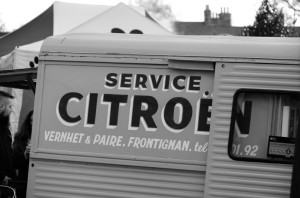OK, so why would a business choose to VAT register when it need not (let’s say it’s turnover is under the VAT registration limit of £82,000)? Isn’t it best just to avoid the VATman if at all possible?
This is not an article which considers whether a business MUST register, but rather it looks at whether it is a good idea to register on a voluntary basis if it is not compulsory.
As a general rule of thumb; if you sell to the public (B2C) then probably not. If you sell to other VAT registered businesses (B2B) then it is more likely to be beneficial.
If you sell B2B to customers overseas it is almost certain that VAT registration would be a good thing, as it would if you supply zero rated goods or services in the UK. This is because there is no output tax on sales, but full input tax recovery on costs; VAT nirvana! A distinction must be made between zero rated supplies and exempt supplies. If only exempt supplies are made, a business cannot register for VAT.
Apart from the economic considerations, we have found that small businesses are sometimes put off VAT registration by the added compliance costs and the potential penalties being in the VAT club can bring. Weighed against this, there is a certain kudos or prestige for a business and it does convey a degree of seriousness of a business undertaking. It may also make life simpler (and reduce costs) if a business buys goods or services from other EC Member States. We also come across situations where a customer will only deal with suppliers who are VAT registered.
The key to registration is that, once registered, a business may recover the VAT it incurs on its expenditure (called input tax). So let us look at some simple examples of existing businesses for comparison:
Example 1
A business sells office furniture to other VAT registered business (B2B).
It buys stock for 10,000 plus VAT of 2,000
It incurs VAT on overheads (rent, IT, telephones, light and heat etc) of 2,000 plus 400 VAT
It makes sales of 20,000.
If not registered, its profit is 20,000 less 12,000 less 2400 = 5600
If VAT registered, the customer can recover any VAT charged, so VAT is not a disincentive to him.
Sales 20,000 plus 4000 VAT (paid to HMRC)
Input tax claimed = 2400 (offset against payment to HMRC)
Result: the VAT is neutral and not a cost, so profit is 20,000 less 12,000 = 8000, a saving of 2400 as compared to the business not being registered. The 2400 clearly equals the input tax recovered on expenditure.
Example 2
A “one-man band consultant” provides advice B2B and uses his home as his office. All of his clients are able to recover any VAT charged.
He has very little overheads that bear VAT as most of his expenditure is VAT free (staff, train fares, use of home) so his input tax amounts to 100.
He must weigh up the cost (time/admin etc) of VAT registration against reclaiming the 100 of input tax. In this case it would probably not be worthwhile VAT registering (although the Flat Rate Scheme may be attractive, please see article here
Example 3
A retailer sells adult clothes to the public from a shop. She pays VAT on the rent and on the purchase of stock as well as the usual overheads. The total amount she pays is 20,000 with VAT of 4000.
Her sales total 50,000.
If not VAT registered her profit is 50,000 less 24,000 = 26,000
If VAT registered she will treat the value of sales as VAT inclusive, so of the 50,000 income 8333 represents VAT she must pay to HMRC. She is able to offset her input tax of 4000.
This means that her profit if VAT registered is 50,000 less the VAT of 8333 = 41,667 less the net costs of 20,000 = 21,667.
Result: a loss of 4333 in profit.
As may be seen, if a business sells to the public it is nearly always disadvantageous to be voluntarily VAT registered. It may be possible to increase her prices by circa 20%, but for a lot of retailers, this is unrealistic.
Intending traders
If a business has not started trading, but is incurring input tax on costs, it is possible to VAT register even though it has not made any taxable supplies. This is known by HMRC as an intending trader registration. A business will need to provide evidence of the intention to trade and this is sometimes a stumbling block, especially in the area of land and property. Choosing to register before trading may avoid losing input tax due to the time limits (very generally a business can go back six months for services and four years for goods on hand to recover the VAT). Also cashflow will be improved if input tax is recovered as soon as possible.
Action
Careful consideration should be given to the VAT status of a small or start-up business. This may be particularly relevant to start-ups as they typically incur more costs as the business begins and the recovery of the VAT on these costs may be important.
This is a basic guide and there are many various situations that require further consideration of the benefits of voluntary VAT registration. We would, of course, be pleased to help.


